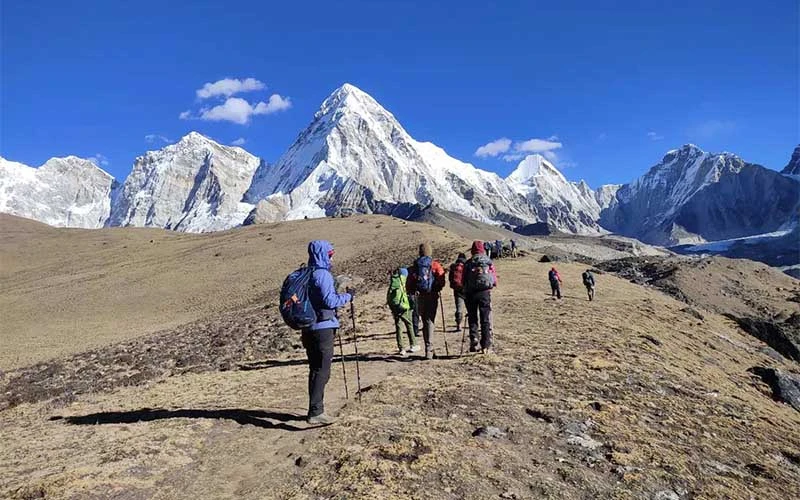Nepal Travel Insurance
- Best price guaranteed
- No booking fees
- E-ticket/Mobile voucher

OVERVIEW
Warning: Undefined array key "highlights" in /home/u506218847/domains/tourofnepal.com/public_html/wp-content/themes/tourofnepal/single.php on line 109
-
ITINERARY
Nepal is a hub for adventure activities such as trekking, climbing, and expeditions, making personal travel insurance an essential requirement. Insurance is also mandatory for certain activities like rafting, bungee jumping, and paragliding. As most adventure areas are in remote parts of the Himalayas, it’s crucial to ensure your travel insurance covers specific risks associated with high-altitude activities.
Is Travel Insurance Compulsory to Travel to Nepal?
Yes, travel insurance is compulsory, especially if you’re engaging in trekking, climbing, expeditions, or other adventure activities in Nepal. When purchasing a policy, it is important to review the fine print carefully to understand what is covered and what is not. Below are the key components your insurance policy should cover.
High Altitude Sickness
Trekking in Nepal often involves high altitudes, such as the Everest Base Camp Trek or the Annapurna Circuit. These routes pose a risk of high-altitude sickness. Your insurance policy must cover this risk, including emergency helicopter evacuation if needed. Ensure that your insurance provider knows the altitude and nature of your trekking route.
Accidents
While no one plans to have accidents, they can happen, especially in the rugged mountain terrain of Nepal. Your insurance policy should cover accidents that occur during trekking or climbing, as well as emergency evacuations when necessary.
Illness
Travelers to Nepal may experience illness due to unfamiliar food, water, or hygiene standards. Your insurance policy should cover illness-related costs, including emergency evacuations for medical treatment.
Stolen, Lost, or Delayed Baggage
It is not uncommon for baggage to be delayed, lost, or even stolen while traveling. Your insurance policy should cover compensation for these incidents.
Other General Coverage
Nepal’s domestic flights, particularly in mountainous areas like Lukla (for Everest Base Camp Trek) or Jomsom, are frequently delayed or canceled due to poor weather. Your insurance policy should cover expenses resulting from such delays, including private helicopter costs if necessary. It should also provide compensation if your trip is canceled due to uncontrollable factors like natural disasters or political unrest.
Make sure your policy also covers any prepaid trip costs to safeguard against unforeseen cancellations.
WHAT'S INCLUDED
Warning: Undefined array key "include" in /home/u506218847/domains/tourofnepal.com/public_html/wp-content/themes/tourofnepal/single.php on line 129
WHAT'S EXCLUDED
Warning: Undefined array key "exclude" in /home/u506218847/domains/tourofnepal.com/public_html/wp-content/themes/tourofnepal/single.php on line 146